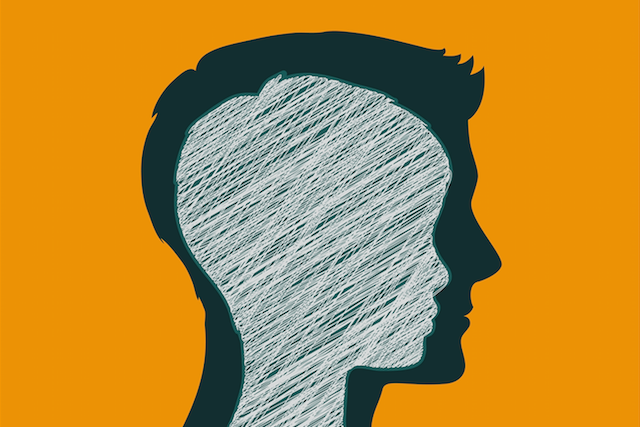
“Hold the hand of the child that lives in your soul. For this child, nothing is impossible.” ~Paulo Coelho
You’re probably an abusive parent. Even if you don’t have children.
In each of us lives an inner child. This child isn’t just a sub-layer of our personality; it’s arguably the real us, the deepest aspect of ourselves.
Like many people, I’ve been aware of the inner child idea for some time. I thought of the concept mostly as another way of explaining our personal sensitivities or the childish behavior we all are capable of at times. But it’s not that; it’s much more.
It wasn’t until I thought of my inner child in relation to my actual children that I started to appreciate just how important it is to really take responsibility for this child. I realized, too, just how so many of us mistreat our inner child. Abuse them even. And it’s changed the way I treat myself forever.
I think of the basic needs of my children. Sleep. Nutrition. Regular praise and encouragement. Physical safety. And of course, love.
The idea of them not receiving these things causes me a pain that feels almost physical. Sadness and even anger arise in me as their dad.
And yet, what about my other child? My inner child—the little me?
I, as my adult self, have just as much responsibility to him as I do my son and daughter. But I, like so many others, have outright failed in my responsibility to him as a supposedly responsible adult.
I have so often deprived him of sleep, made him go long periods without eating, and failed to keep him adequately hydrated. I have dragged him to work with me and pushed him so hard that he has burned out. I have allowed past girlfriends to abuse him.
And worst still, I have failed to tell him I love him. I have let him feel unloved, unwanted, and unworthy. Because I was continuing a pattern.
Like so many people, I had experiences early in my life that communicated to my inner child that he was not enough. For some people, this manifests as a deep-seated, almost silent belief, whispered into the ear of our inner child that says, “You are not good enough,” “You are not wanted,” or “You are not important.” Ultimately, it’s a feeling of being unlovable.
In my case, this came about from incidents of witnessing and experiencing abusive behavior at home, with my parents’ divorce when I was a five-year-old at the center of it. I later experienced a more subtle emotional neglect by my parents and had experiences with violence.
But experiences do not have to be this extreme at all. Simply growing up in a home where no one says “I love you” or having parents who never check in with us to find out how we’re doing is more than enough for a tiny person to develop these subtle but powerful beliefs. These experiences don’t even have to be at the hands of our parents; being rejected by friends at a young age can have the same effect.
When people give the general advice of “take care of yourself,” what they never mention is that if you don’t, you will be failing to care for a child that is dependent on you for safety, security, and love.
Here are the three general ways I make sure I live up to my responsibility as the sole caretaker of this child…
Provide the Basics
Just as I would never let my children go without adequate food, water, and sleep, I now ensure that I extend the same to myself.
Push yourself in your work and mission; live at your edge to achieve your goals. But don’t do so at the expense of your health. While it’s true that growth rarely comes from times of comfort in our lives, comfort and being cared for are still necessities.
Ensure you are getting enough sleep. Eat regularly and healthily. Stay hydrated throughout the day. It may not sound so serious, but frame it in terms of providing these basic needs to a child, and you will see how these things equate to essential self-love.
Give Them Gifts
Children aren’t “shallow” for liking to receive presents at Christmas or on birthdays. Gifts, in whatever form they may come, are a valid way of giving and receiving love. Everybody loves to be pampered and buy nice things for themselves. Don’t overlook the idea of buying yourself gifts or getting a massage as valid parts of self-work.
By gifting ourselves regularly, we train ourselves to receive. Many people struggle with accepting gifts and favors, and this often comes from an inability to receive love as a result of our deep feelings of unworthiness.
At first, gifting ourselves can feel a little shallow. The trick is to not put the emphasis on buying ourselves stuff—the giving—but to focus on the feeling of receiving. By allowing ourselves to open up emotionally to fully accept a gift, we are telling our inner child that they are worthy.
But at the same time, just as you can spoil a child, it’s important to not make gifting the only way of showing yourself love.
I have witnessed, many times, people trying to overcompensate for their self-love issues through materialism. So make sure you have the basics covered too, as well as ensuring you…
Spend Time with Your Inner Child
We’ve all known, or possibly have been, that child that grew up with everything. They had the nice house and all the latest stuff, but weren’t really happy.
Maybe their parents weren’t very good at communicating emotions. Or they prioritized their bickering over their children’s happiness. Or perhaps they were just straight up abusive.
A similar dynamic can occur with our relationship to our inner child. And so it’s important to develop healthy communication with that part of yourself.
Through visualization, spend time being present with the little you. Allow them to feel your full caring, appreciation, and protectiveness as the responsible adult you.
In a quiet place, you can envision you, in your adult form, being present with the little you. Maybe you are holding them, sitting them on your lap, or listening to their feelings and needs so you can meet them, instead of ignoring them, as so many of us do.
You can also spend time stepping into the shoes of your child self and take comfort in experiencing the loving presence and protective qualities of your adult self.
Feeling as though you were your child-self, allow yourself to be held and comforted by the adult you who has vowed to protect you. Feel the safety, security, and comfort—the unconditional love—that you perhaps were deprived of as a child.
—
Treating yourself with this level of respect, care, and unconditional love is some of the deepest and most instantly rewarding self-work one can do. Start today and be sure to share with others this practice when they notice the positive changes in you!
About Sharif H Joynson
Sharif H Joynson is a writer and coach based in London, England. He is also a dad, dedicated life partner, personal trainer, and self-defense instructor. He works with men and couples to make them stronger in themselves and their relationships. Visit him at www.sharifhjoynson.com.













 Though I run this site, it is not mine. It's ours. It's not about me. It's about us. Your stories and your wisdom are just as meaningful as mine.
Though I run this site, it is not mine. It's ours. It's not about me. It's about us. Your stories and your wisdom are just as meaningful as mine.
Hi Sharif
Thank you so much for this blog! Most of the things you said rang so true for me too (I’m a 49 year old male). I too got the subtle “I’m not good enough” message throughout my childhood, and it has haunted and sabotaged me ever since. However, life has recently given me the opportunity to confront and resolve this issue (a very hard lesson, but a most worthwhile one). Today I felt a bit down again, and I “happened” to come across your post (as in, I’m sure I was guided to it), and it definitely lifted my Spirit. Thank you so much, and all the best on your Path.
Gunter
:>)
That’s great to hear, that my article lifted you up. Truly makes every word typed worth it, to know that I helped just one person in this way
Thank you, this spoke to me. I actually felt something from reading this. This is a great way of looking at ourselves. Thanks again
That’s lovely. I’m very happy that it touched you on some level.
I never saw things this way before but it is definitely eye opening blog and very good advice to follow.
Yes, it was a light-bulb moment for me. Nobody presented this perspective to me… it just hit me but has benefited me and how I live my life ever since. I hope it does the same for you, Isabelle!
Great article!
😀 Thank you!
One of the best articles I ever read:-)
Wow. What a compliment! Thank you very much. I truly hope my words benefit you and add value.
It’s a well deserved compliment. I shared it with some friends and on Twitter. Definitely gave me something to think about:-) Well done!
😀
Thank you. Much needed, and this step forward brings immeasurable well being. And it’s all about the momentum forward to becoming the best person we all can become. Thanks again.
I honestly believe this is the way to heal the world, by starting without ourselves and then our actual children
amazing article and so timely for me. i will be sharing this with a few people! thank you!
Thank you, Liz!
This is an awesome article. Thank you for writing it.
Thanks so much, Laurie 🙂
Thank you so much for this article. I had been having trouble understanding just how to communicate and take care of my inner child, and your description and instructions made it clear to me. Much appreciated!
Thank you. I hope you get on well with the exercises. It’s very powerful to step into both the adult you and the child you and feel the giving and receiving of unconditional love from those perspectives. Feel free to let me know how you get on 🙂
This was just superb, Sharif. As much as it pains me to admit it, I am an abusive parent, and as I have discovered recently, not just to myself but also to my elderly father who has Alzheimer’s. I have been at a loss as to how to do it differently for a while and coming across this has opened the door. Thank you for writing this so beautifully. There is some healing needed in some places of my life and I feel like this is the first step i need to take.
That’s amazing. I’m so happy that you will benefit from this. Parenting is really at the root of… everything (!)… relationship related. Our relationship to our parents, our self-parenting and our relationship to our own children… this is what makes the world what it is, I believe. If we can get on top of all of these, we’re on to making our lives great and also the lives of others. I’m hoping to produce a course on how to heal our relationship with our parents in the future.
Please hurry up with that course, it sounds fantastic! I am sure you have had the experience in your own life where the right this just comes along at the right time and shifts something that was stuck? Your article was that for me and from the other side of the world, I am sending my heartfelt thanks to you. The journey you are making in your own life has added tremendous value to mine, just with the insights I have had mulling this over this weekend. Dealing with Alzhiemer’s has been the hardest experience I have ever under gone and it is asking something new from me. You have helped me get an inkling of what that is. I imagine my father is thanking you too!
That’s beautiful. Thank you very much for sharing that with me. I’m humbled.
I felt so connected to this article as I have come to realise that taking full responsibility for how we treat ourselves is so important. Growing up I learnt that self love was a selfish act and unconsciously I guess I neglected the core of my being. Recently, I have been so focused on reversing this deep rooted belief and happy to have been guided to your article at this time. I will definitely use some of the exercises you have mentioned to nurture the little me. Thank you for sharing such a powerful and beautifully written article.
It’s great that you identified that false belief that was installed in you at such a young age. Reversing that that belief will change your life! Good luck!
Thanks for sharing. While I have been reconnecting with my inner child in order to rediscover my passions and find out what really makes me happy in order to discover my true self, I never thought of taking care and sometimes spoiling him.
Thanks for sharing that. I’m happy to hear that the article added another layer to the work you’re already doing 🙂